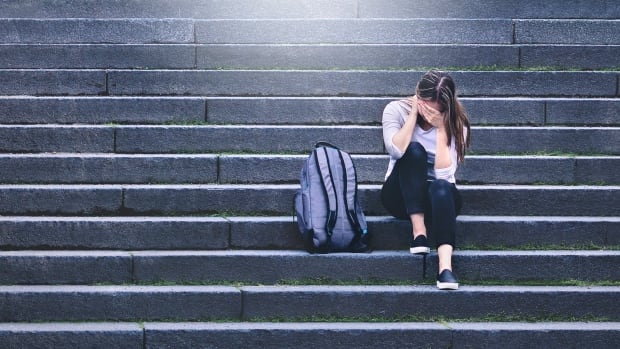

A new school year can be a time of new beginnings, but it can also bring additional stress for students, says a mental health educator who’s urging people to take care of themselves.
Sarah Jones, a child and youth educator at the Canadian Mental Health Association Newfoundland and Labrador, said a new school year comes with a shift in routines, more responsibilities and a larger workload on top of social pressures that can cause stress.
“It can be super daunting just to have that change. Even just the change in environment can kind of throw you off,” Jones told CBC News.
She said people shouldn’t expect themselves to immediately adapt to those changes, adding there are a number of things students can do to manage their mental wellbeing.
“Focusing on self-care, which doesn’t just mean eating enough, drinking enough, sleeping enough. It can also be exercise, mindfulness, activities like yoga, meditation, breathing, investing in hobbies, finding creative outlets,” she said.
It can also include disconnecting from social media as well as setting reasonable expectations for what they can accomplish, said Jones.

“Understand that you’re not going to do everything perfectly and no one can really realistically expect you to — so try to be there for yourself and support yourself through the difficult times as well.”
There are also resources available, said Jones, like the 9-8-8 Suicide Crisis Helpline, as well as the Lifewise Provincial Warm Line and Bridge the gApp.
Jones said the Canadian Mental Health Association also has a list of educational resources that can help people identify early signs of mental health struggles and give people tools to manage their mental health and develop coping skills.
“We have a bunch of courses and we think that these really work to create safe and supportive environments where people can learn and thrive and grow,” said Jones.
Stress on parents
Students aren’t the only ones experiencing more stress than usual.
U.S. Surgeon General Dr. Vivek Murthy recently issued an advisory on the state of parental mental health, citing a 2023 study from the American Psychological Association that found 48 per cent of parents and caregivers responded they were overwhelmed.
Janine Hubbard, a registered psychologist in St. John’s, said parents face a lot of scrutiny that can lead to additional stress.
“Parenting is one of those thankless things that a lot of people are judgmental about. A lot of people have commentary about how you should be parenting,” said Hubbard.
There’s also a lot of shame directed at parents, said Hubbard, that often results from comparing how they stack up as parents against others.

Hubbard said parents often don’t notice they are heading for burnout if they’re on a mental health decline, and she wants them to remember to check in on themselves and each other before that becomes a more dire problem.
Stress impacts cognitive function and a person’s ability to juggle multiple tasks, she added.
If someone can’t multitask the way they used to, they shouldn’t feel ashamed about it and to use it as a warning sign they need help.
“Not doing the ‘blame and the shame’ about it — but using that as a warning sign of maybe there’s too much going on,” said Hubbard.
Parents who are struggling with stress can also negatively impact their children’s physical and mental health, even extending into their adulthood, said Hubbard.
“In the milder end of things, what we tend to see is — kids don’t develop good coping strategies if their parents don’t have good coping strategies,” she said.
Download our free CBC News app to sign up for push alerts for CBC Newfoundland and Labrador. Click here to visit our landing page.